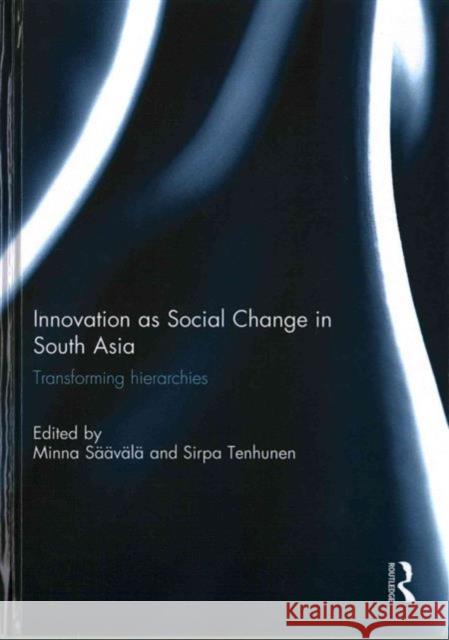Innovation as Social Change in South Asia: Transforming Hierarchies » książka
Innovation as Social Change in South Asia: Transforming Hierarchies
ISBN-13: 9781138855588 / Angielski / Twarda / 2015 / 100 str.
Innovation as Social Change in South Asia: Transforming Hierarchies
ISBN-13: 9781138855588 / Angielski / Twarda / 2015 / 100 str.
(netto: 676,35 VAT: 5%)
Najniższa cena z 30 dni: 654,86
ok. 16-18 dni roboczych.
Darmowa dostawa!
This book examines innovation as social change in South Asia. From an anthropological micro-perspective, innovation is moulded by social systems of value and hierarchy, while simultaneously having the potential to transform them. Peterson examines the printing press's changing technology and its intersections with communal and language ideologies in India. Tenhunen explores mobile telephony, gender, and kinship in West Bengal. Uddin looks at microcredit and its relationship with social capital in Bangladesh. Jeffrey surveys imbalanced sex ratios and the future of marriage payments in north-western India. Ashrafun and Saavala investigate alternative dispute resolution as a social innovation which affects the life options of battered young wives in Sylhet, Bangladesh. These case studies give insights into how the deeply engrained cultural models and values affect the forms that an innovative process can take. In the case of some South Asian societies, starkly hierarchical and holistic structures mean that innovations can have unpredictable sociocultural repercussions.The book argues that successful innovation requires taking into account how social hierarchies may steer their impact. This book was originally published as a special issue of Contemporary South Asia.











